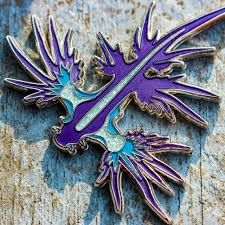Our Creations | Rosmarba Handmade Crafts & Artistic Creations
At Rosmarba, every creation begins with a story. Our handmade crafts are more than objects—they are expressions of imagination, patience, and artistry, designed to bring beauty and warmth into everyday life. Each piece carries the gentle marks of human touch, ensuring that no two items are ever the same. This individuality is what makes our work timeless and treasured by those who appreciate authenticity and craftsmanship.
The Art of Handmade Work
In a world dominated by mass-produced items, Rosmarba embraces the slower rhythm of traditional crafting. Every brushstroke, every stitch, and every carving is guided by an artist’s dedication to detail. Our creations are shaped with care, celebrating imperfections as a sign of genuine artistry. Instead of chasing uniformity, we cherish uniqueness—allowing every handmade item to reflect the soul of its maker.
A Blend of Tradition and Innovation
Our artistic journey combines the wisdom of tradition with fresh, modern ideas. We draw inspiration from classic crafting methods passed down through generations, yet we reimagine them for contemporary tastes. Whether it’s a delicately painted ceramic bowl, an intricately woven textile, or a sculptural centerpiece, Rosmarba’s designs balance timeless elegance with creative innovation.
Sustainable and Ethical Creations
Rosmarba believes in creating beauty responsibly. Our materials are sourced with care, prioritizing natural, recycled, and sustainable resources whenever possible. This commitment to eco-friendly crafting ensures that our work not only brings joy but also respects the environment. Choosing handmade means choosing a slower, more mindful approach to consumption, where each piece is made to last rather than to be replaced.
Celebrating Artistic Expression
Every creation in our collection tells its own story. Some are inspired by nature—patterns drawn from leaves, flowers, rivers, and skies. Others come from cultural traditions, reinterpreted through modern eyes. Our artists experiment with textures, colors, and forms to create pieces that spark emotion, ignite curiosity, and invite connection. For us, art is not about perfection but about expression, and each work is a reflection of that philosophy.
From Our Hands to Yours
When you choose a Rosmarba creation, you are not simply purchasing a handmade item—you are welcoming a piece of someone’s passion into your life. You are supporting artistry, preserving traditions, and valuing the irreplaceable human touch in an age of machines. Whether given as a gift or cherished personally, our creations carry warmth, character, and a reminder that true beauty lies in authenticity.
Looking Ahead
Rosmarba continues to grow as a home for handmade art. We envision expanding our creations into new mediums and collaborations, working with local and global artisans to celebrate diversity in craftsmanship. Our future collections will carry the same spirit of authenticity, but with even greater creativity and innovation—always rooted in the handmade tradition that defines us.
